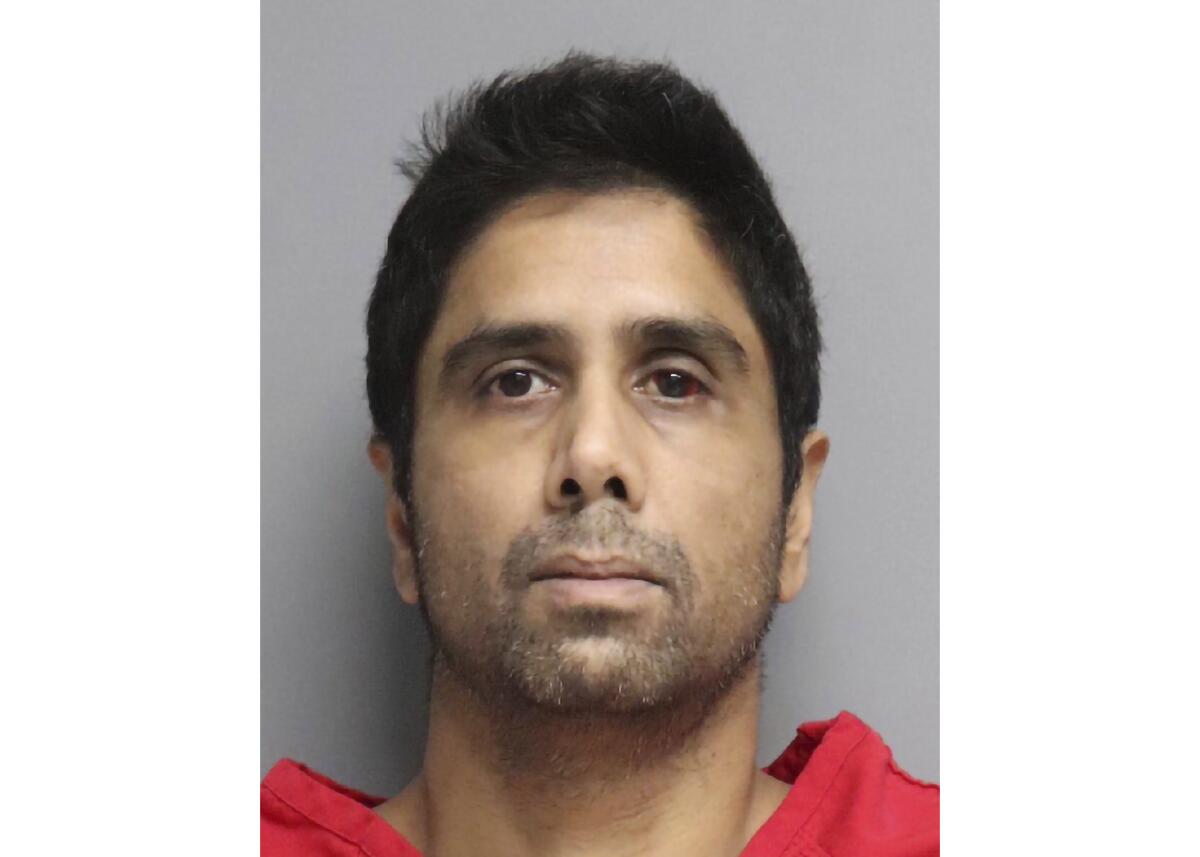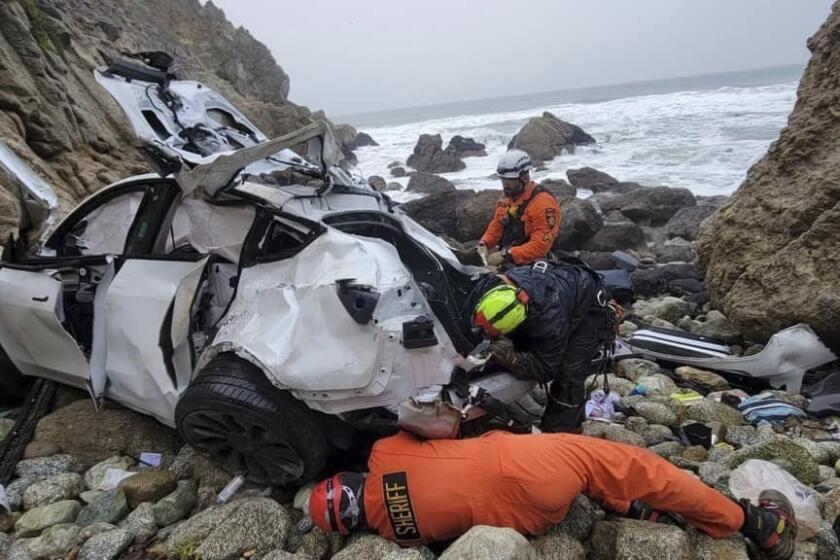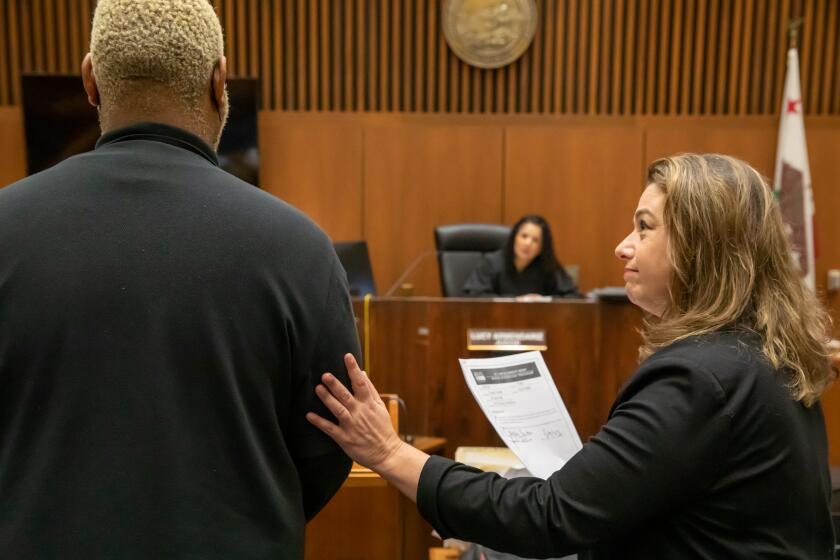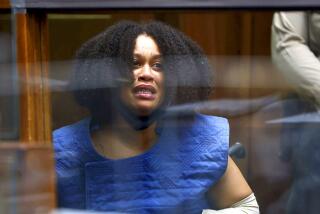Man who drove family off cliff in Tesla seeks mental health diversion in attempted murder case

A Pasadena man whose family was inside his Tesla when it plunged off a cliff in San Mateo earlier this year is seeking to avoid a criminal conviction in his case, saying that he suffers from depression.
Dharmesh Patel filed a motion in San Mateo County Superior Court arguing that his case should be moved to Mental Health Diversion Court because of his major depressive disorder.
Patel was arrested by the California Highway Patrol and charged with three counts of attempted murder following the Jan. 2 crash, which first responders initially deemed an “absolute miracle” because no one was killed. But the mood quickly soured when authorities revealed they believed Patel drove off the cliff intentionally.
Patel’s wife, Neha, their 7-year-old daughter and 4-year-old son were in the car when it plummeted more than 250 feet off Devil’s Slide, a notorious part of Highway 1 south of San Francisco.
Dharmesh Patel, 41, was arrested by the California Highway Patrol on suspicion of attempted murder and child endangerment after the Jan. 2 crash, but prosecutors waited until after he was transferred out of the hospital to charge him.
Patel’s attorneys hope the 2018 Mental Health Diversion Court law could help him avoid a criminal sentence.
The law allows for offenders to have their prosecutions postponed temporarily or permanently if they are ordered by a judge to go into a mental health treatment program.
For misdemeanor cases, the programs cannot last longer than a year. For felonies, they cannot last longer than two years.
Certain crimes are excluded from eligibility, including murder and manslaughter. But Patel’s charges — attempted murder — are not barred from the statute. Still, a judge will need to take into account the seriousness of the criminal allegations when ruling on Patel’s motion, Los Angeles defense attorney Lou Shapiro said.
“When you have a situation like this where the act was very egregious and this could happen again, and people could get very badly hurt, a judge is going to be less likely to want to take that risk and grant diversion,” he said.
Public defenders, prosecuting attorneys and judges in L.A. work together to order treatment instead of incarceration for defendants whose crimes arise from mental illness.
Shapiro said judges take into account whether there were victims in the case and the likelihood of recidivism.
Patel’s defense attorney, Joshua Bentley, filed the motion for diversion last week. The papers were under seal, according to the district attorney’s office. He did not respond to requests for comment.
Prosecutors have yet to respond to the motion.
More to Read
Sign up for Essential California
The most important California stories and recommendations in your inbox every morning.
You may occasionally receive promotional content from the Los Angeles Times.












